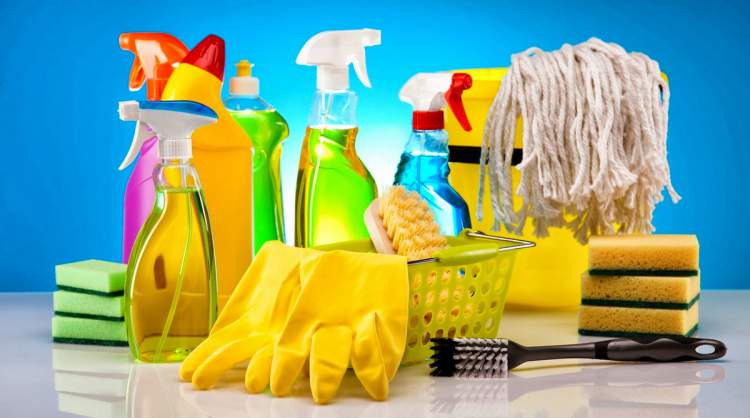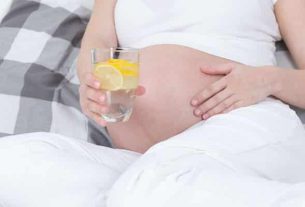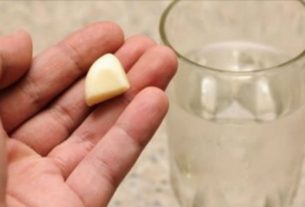Often, when we are faced with difficult cleaning, we try to use bombastic combinations to send the dirt flying. However, we always need to be very careful as there are some cleaning products that we should not mix.
Even some natural cleaning products like vinegar and baking soda can be dangerous when mixed with other substances.
Today, we made a list of 6 combinations, that is, 12 cleaning products that you should not mix when you are trying to get rid of dirt in your house. Take note!
See Also: 6 ways to make cleaning the house more fun

Vinegar + hydrogen peroxide
When we mix hydrogen peroxide (hydrogen peroxide) with acetic alcohol (found in high concentrations in vinegar), we produce a compound known as paracetic acid.
This acid can irritate the skin, eyes and respiratory system and is also very corrosive and toxic.
You can use both cleaning products in the same place, but alternately, spraying one of them, cleaning and then spraying the other on the clean surface.
See Also: 10 mistakes you make when cleaning
Vinegar + bleach
Although this combination sounds like a powerful disinfectant, remember that the two products should not be mixed.
Bleach (sodium hypochlorite) and vinegar (acetic alcohol), together, produce a type of chlorine gas that can cause burning eyes, coughing and even respiratory problems.
See Also: 7 Tricks to Make Your Home Scented
Vinegar + baking soda
Baking soda is an excellent cleaning ally, especially for washing clothes, making dishes whiter and the house smelling better.
However, mixing baking soda with vinegar (acetic alcohol) results in water and sodium acetate, causing one component to nullify the cleaning power of the other.
The mixture is effervescent and can be used to “lift” stubborn and encrusted dirt, but there is no cleaning power in it.
Furthermore, you should never leave the two cleaning products mixed and sealed in a bottle. As the mixture is effervescent, the bottle may explode.
See Also: Top 6 household tasks that burn the most calories
Bleach + isopropyl alcohol
Widely used for cleaning electronics such as computers, monitors, stereos and TVs and for cleaning hardware parts, isopropyl alcohol has a very low concentration of water.
Around 99.95% of its formula consists of alcohol and only 0.05% of water.
Isopropyl alcohol evaporates very quickly and has great disinfectant and antiseptic power, however, it is quite flammable and should never be mixed with bleach.
This combination can result in toxic gases.
Depending on the concentration used, the two cleaning products acting together can even cause fainting.
See Also: 11 ways to wash clothes with vinegar
Bleach + ethyl alcohol
Ethyl alcohol is also known as chloroform or trichloromethane. You’ve probably seen a movie or soap opera where a kidnapper numbs the victim with a damp cloth and she passes out.
This is the substance used in the cloth, but in high concentration.
Mixing ethyl alcohol with bleach won’t necessarily make you faint, but it can cause a lot of irritation and be highly toxic depending on the concentration.
See Also: Tips for washing and removing stains from clothes
Bleach + ammonia
Mixing bleach and ammonia seems tempting to get rid of bacteria and odors, but the result of combining these two cleaning products is chloramine, a highly toxic gas that can cause burning eyes, severe coughing, chest pain and lack of sleep. air.
You may not know, but most cleaning products sold contain ammonia in their composition, so, to avoid complications, never mix bleach with anything.
See Also: 10 tips to keep your home clean and organized

Sign up for our newsletter and stay up to date with exclusive news
that can transform your routine!
Warning: Undefined array key "title" in /home/storelat/public_html/wp-content/plugins/link-whisper-premium/templates/frontend/related-posts.php on line 12
Warning: Undefined array key "title_tag" in /home/storelat/public_html/wp-content/plugins/link-whisper-premium/templates/frontend/related-posts.php on line 13



